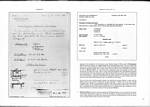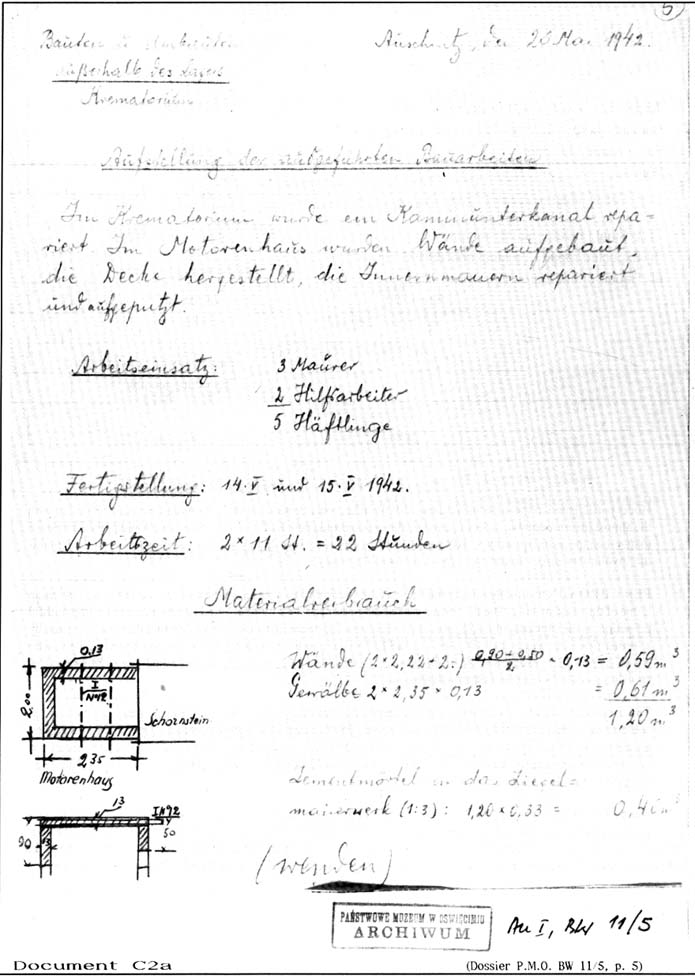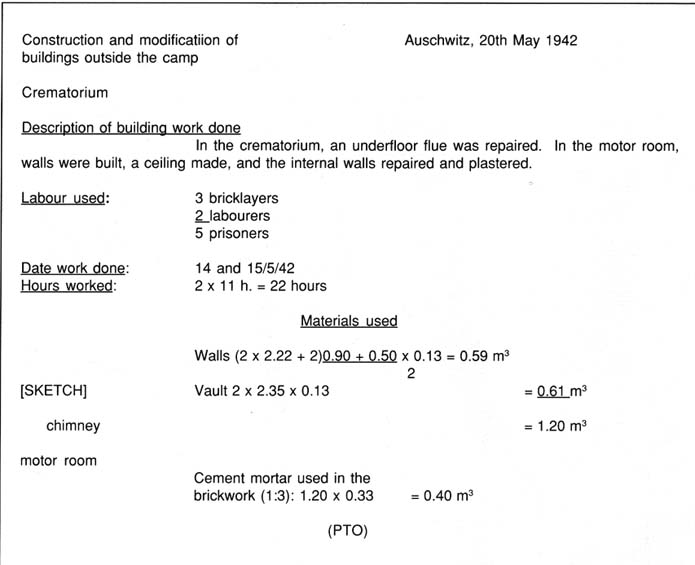|
|
 |
 |
AUSCHWITZ:
Technique
and Operation
of
the Gas Chambers © |
|
|
| |
 |
Back |
 |
Contents |
Page 127 |
 |
Home
Page |
Forward |
 |
| |
| Document C2a |
 |
| |
Document C2b
[PMO
File BW 11/5] |
 |
|
| |
drawings for the
installation o f the third furnace (“neuer Ofen / new furnace”) 59042
a and b of 25th September 1941 indicate that the chimney was a square
section and thus had already been rebuilt. This casts a doubt on the
presence of the witness during the fire that he describes (pages 45 and 46) and
the resulting damage to the chimney that had to he rebuilt more solidly, hence
of square section. However, there is a series of documents concerned with an
order of 13th May 1942 by the camp administration [Documents C1a and
C1b] requesting the repair of the Krematorium [I] chimney (first item),
which is wrong, because the description of the work [Documents C2a and C2b,
C3a and C3b] and the final report [Documents C4a and C4b] show that the
repair was actually only on an underground flue ("Kaminnterkanal"). These
documents fully confirm the witness’s account of the accident (jets of
cold water on fire bricks heated to a a temperature of 800-1000° C), but
negate the existence of a “round” chimney in May 1942, because even
the sketch on the description of the work [C2a] shows it to be square.
This error on the form of the Krematorium I chimney, first noted by the
Auschwitz Museum, is minor, since the damage caused by the accident is
confirmed by the repair documents. F. Müller. who can be seen in Claude
Lanzmann's film “SHOAH” (script published by Fayard in
1985, where he states on page 73 that “the firebricks exploded suddenly,
and the [underground] flues linking the Auschwitz Krematorium to the chimney
were obstructed”, an explanation perfectly in line with the repair
documents) is a valuable witness with a “technical” eye, even if like
anyone else, he is sometimes mistaken (on facts going back 40 years!).
|
| |
|
| 3. |
RUDOLF HOESS
describes one of the first gassings [of 900 Russian prisoners of war] at which
he was present, in the morgue of Krematorium I (page 164). Two details are
unlikely: the squeezing of 900 persons into 78.2m² and the
“rapid” drilling of several holes in the ceiling to pour the Zyklon
B. Drilling through 10 to 15cm of concrete was not a job that could be done on
the spur of the moment. |
|
| |
AUSCHWITZ:
Technique and operation
of the gas
chambers
Jean-Claude Pressac
© 1989, The Beate Klarsfeld Foundation |
 |
Back |
Page 127 |
Forward |
 |
|

